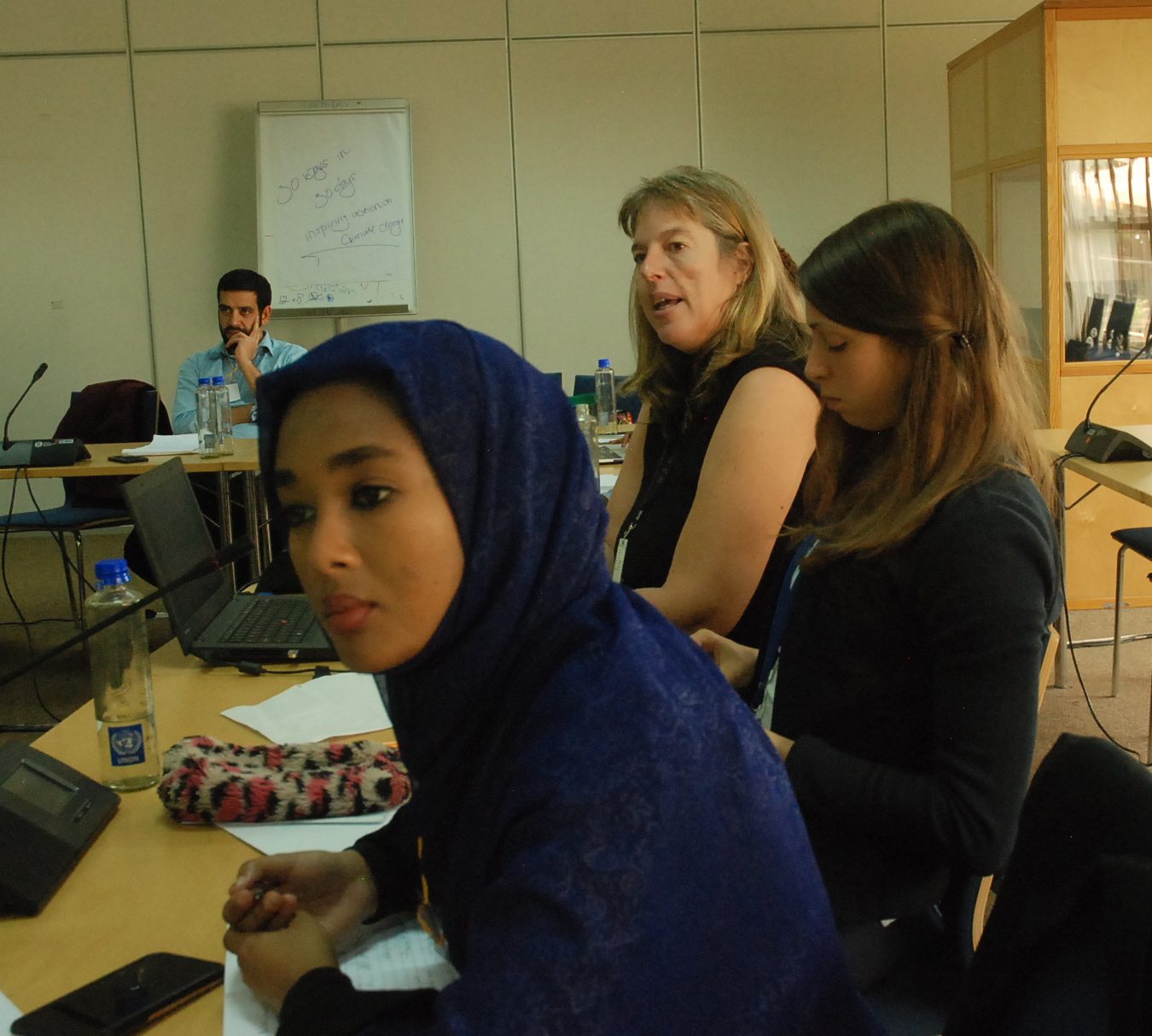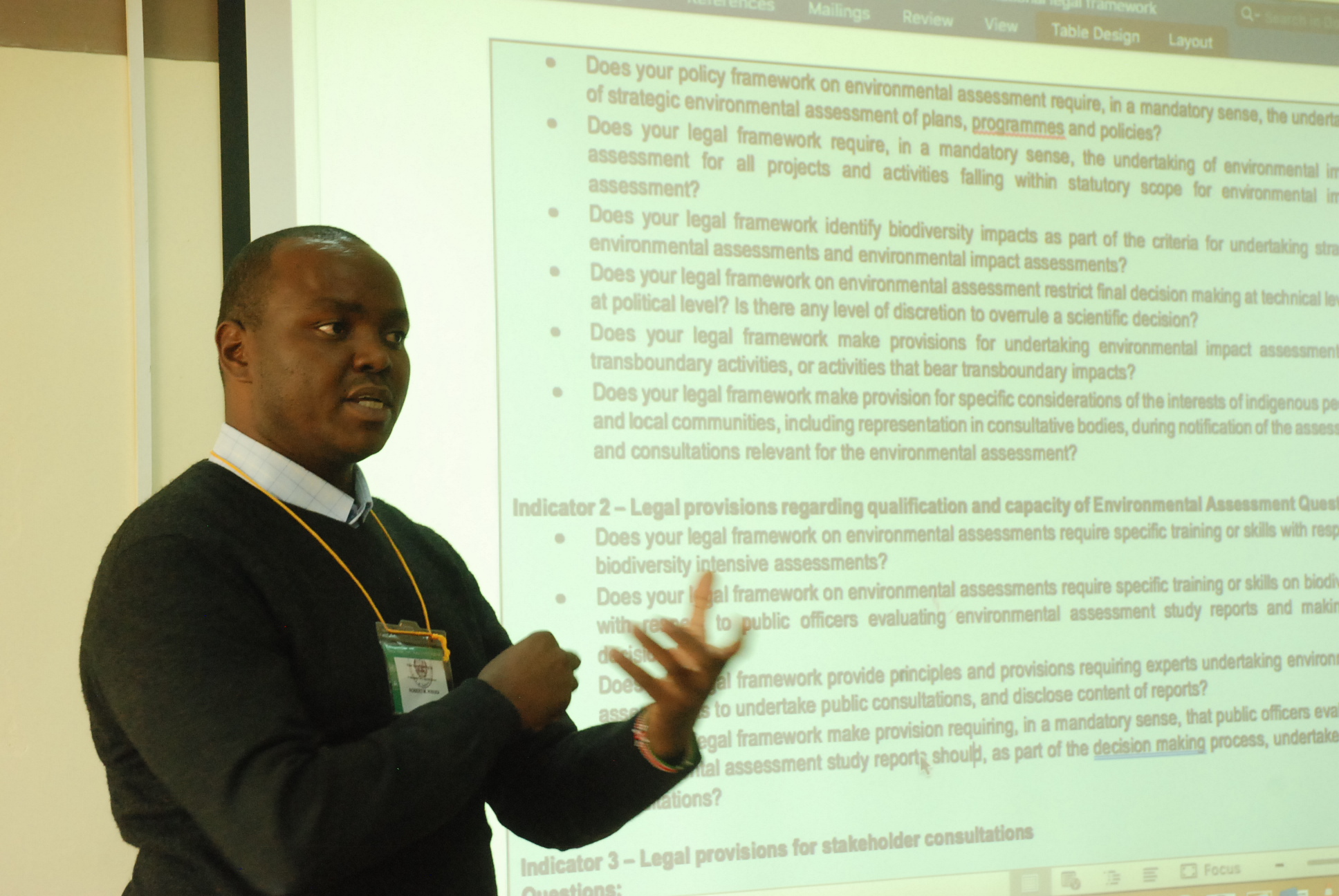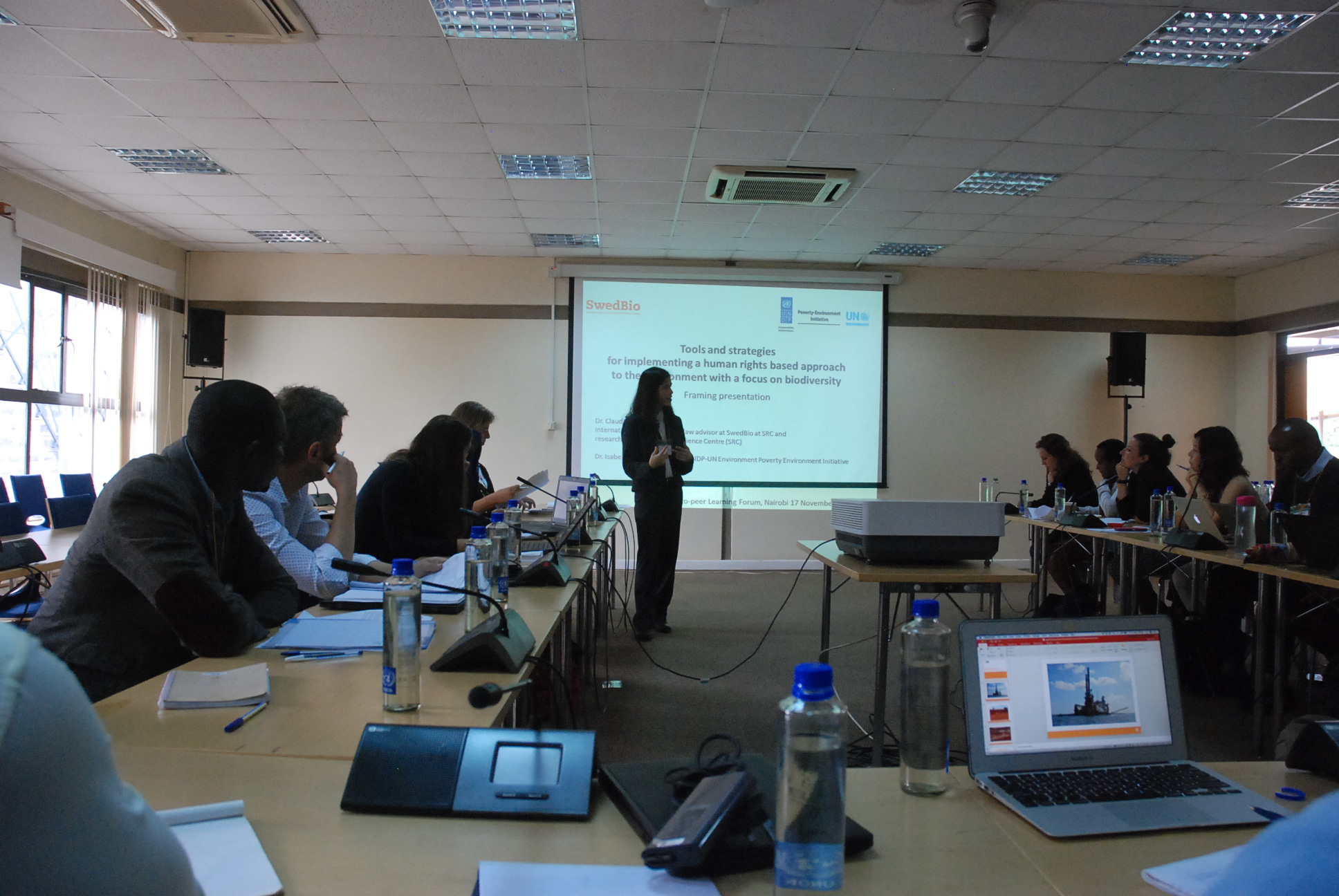 Story highlights
Story highlights
- The momentum is gathering and there are advances in connecting human rights and the environment
- There are few spaces to collectively engage in frank and open dialogue on co-delivering benefits related to biodiversity, healthy ecosystems and social justice objectives
- In November 2017 a Peer-to-peer learning forum was convened to exchange experiences on the use of tools and strategies for implementing a rights-based approach to the environment and identify synergies for delivering the SDGs
- Human rights principles of: Indivisibility, interdependence and interrelatedness of human rights; Equality and non-discrimination; Participation and inclusion; Accountability and the rule of law; can help navigate complex social-ecological dynamics
Human rights principles can provide a solid framework for finding ways to overcome poverty and safeguard life on Earth and underwater. This is because most countries have ratified various international human rights agreements, such as the International Covenant on Economic, Social and Cultural Rights and the International Covenant on Civil and Political Rights. Some countries have also incorporated these principles as key pillars of international development cooperation, furthermore, Agenda 2030 explicitly recognizes that it is grounded in international human rights treaties.
Building on existing foundations, the momentum is gathering and there are advances in connecting human rights and the environment such as the recommendations by the resolution on human rights and the environment adopted by the Human Rights Council in 2017 and the Cancun Declaration on Mainstreaming the Conservation and Sustainable Use of Biodiversity adopted at the thirteenth meeting of the Conference of the Parties to the Convention on Biological Diversity in 2016.
UN Special Rapporteur on human rights and the environment, Professor John Knox, presented a thematic report on human rights and biodiversity at the UN Human Rights Council in 2017. Knox calls for sharing good practices in applying the human rights-based approach and building more active partnerships to further the nexus between human rights, biodiversity and ecosystems.
A safe space for exchange and collaboration
SwedBio has been mulling over how to respond to these calls to further the nexus between Sustainable Development Goals (SDGs), biodiversity and human rights law with key partners in Nairobi, such as UN Environment, UNDP, the International Development Law Organization (IDLO) and the civil society organization Natural Justice. These institutions have rich experience in the use of distinct tools, methodologies and strategies to apply the human rights principles. Yet, there are few spaces to collectively engage in frank and open dialogue, and to exchange lessons learnt about what has worked or not, using these tools and strategies for delivering benefits related to biodiversity, healthy ecosystems and social justice objectives.
There is untapped potential to work collectively and SwedBio, in its role as a bridge between research, law, policy and practice, facilitated further connections between the work of these organisations at an informal, in-depth dialogue that followed the August 2017 Resilience Conference in Stockholm.
A peer-to-peer learning forum
The dialogue proved so fruitful that in November 17th 2017, the UNDP-UN Environment Poverty-Environment Initiative (PEI), the UN Environment Ecosystems Division and SwedBio/Stockholm Resilience Centre convened a Peer-to-peer learning forum in collaboration with Natural Justice and IDLO. The objective of the forum was to exchange experiences on the use of tools and strategies for implementing a rights-based approach to the environment, including biodiversity, and identify synergies among these tools and strategies for delivering the SDGs in an integrated way.
The peer-to-peer learning forum provided a unique opportunity to craft a suite of strategic solutions, rather than assuming there is a single tool or strategy that fits all. It also served as a space for exploring synergies to catalyse their impact on human rights, biodiversity and ecosystems and implementing Agenda 2030. Besides the organizers, around twenty Nairobi-based staff from PEI, UN Environment and UNDP Global Centre for Resilient Ecosystems and Desertification participated. The methodology used was informed by the Multi-actor Dialogue Seminar methodology basing on experience gained over the past decade as well as participatory methodologies used by the other organizing institutions.
Participants exchange experiences and discuss at the Peer-to-peer learning forum
Natural Justice legal practitioners team and community environmental legal officers shared their experience on the use of legal empowerment methodologies to support disadvantaged people – for example in assessing the impact of mining on human well-being. PEI’s strategy consists in integrating both the rights holders and duty bearer dimensions of the human rights principles at the heart of development planning, policymaking, budgeting, implementation and monitoring at national and sub-national level. International Development Law Organisation (IDLO) and University of Nairobi presented a Legal Assessment Tool on mainstreaming biodiversity and human rights and identifying the need for new laws or reforms in a legal framework.
Human rights can help navigate complex social-ecological dynamic
“For effectively weaving Sustainable Development Goal 16 on peace, justice and human rights principles with safeguarding biodiversity and healthy ecosystems in practice, the development of a conceptual framework and coordinated action between right-holders and duty bearers in different parts of the world is key” Dr. Claudia Ituarte Lima
Legal and policy support tools were discussed to implement the human rights principles and achieve the SDGs
Some insights from the forum are that human rights principles of: Indivisibility, interdependence and interrelatedness of human rights; Equality and non-discrimination; Participation and inclusion; Accountability and the rule of law, which are cross-cutting in Agenda 2030 and embedded in SDG 16, can help navigate complex social-ecological dynamics. Furthermore, they can help to identify what needs to be transformed in legal and policy implementation for achieving the SDGs in an integrated way, while taking into account groups of people including those in vulnerable situations.
Face-to-face dialogue is invaluable as a means to better understand current complex political and social-ecological situations and to create a shared vision of how to apply the human rights principles and associated tools. There is great potential in coordinated action between researchers, lawyers, policymakers, judges and community environmental legal officers. Together, there is hope for innovative initiatives that can specify and activate the sustainability and biodiversity dimensions of SDG 16 on peace, justice and the human rights principles.




 Private: Claudia Ituarte Lima
Private: Claudia Ituarte Lima